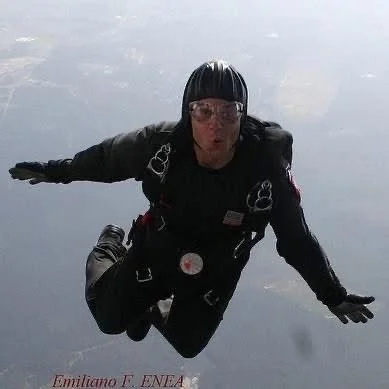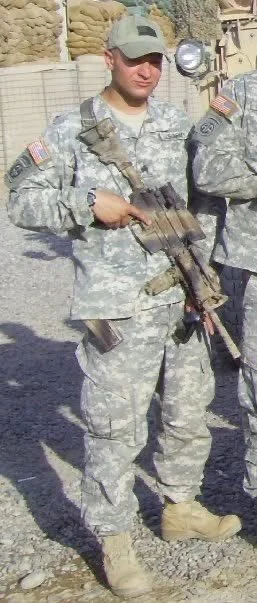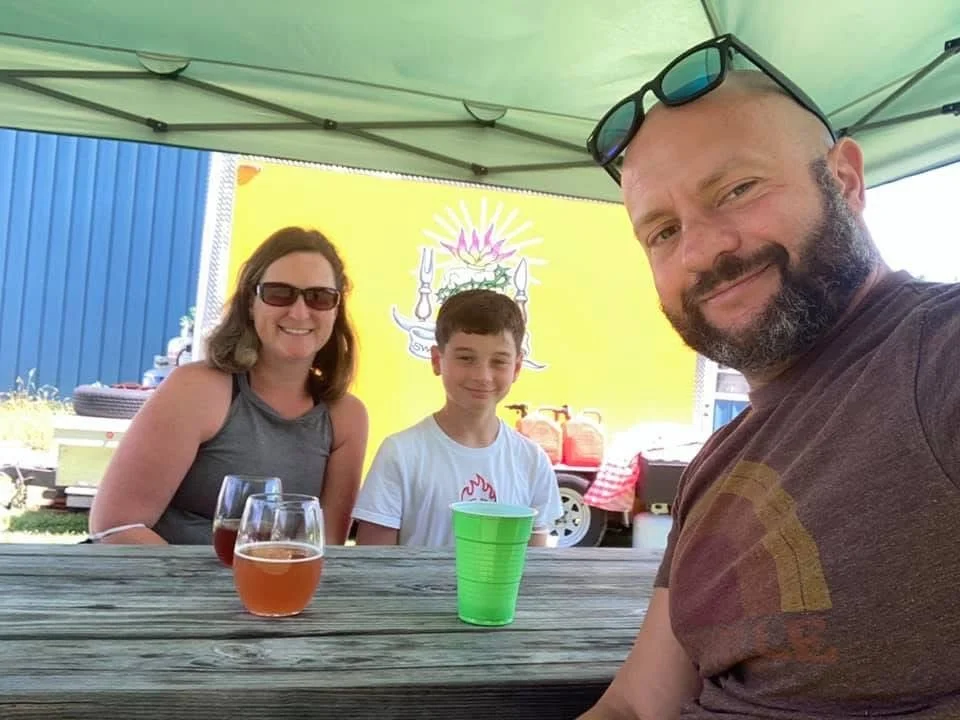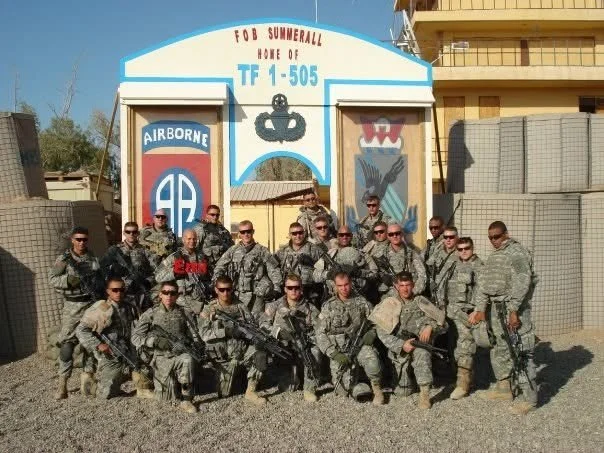Emiliano
Veteran - served in Iraq & Afghanistan
82nd Airborne Infantry
When Emiliano walked through the door on September 11, 2001, he still had his bag from the Army recruiter in his hand. He turned on the television just as the towers were falling.
“I came back from the recruiter on 9/11,” he says. “Literally.”
Born and raised in New York City, Emiliano is a first-generation American. His parents had come to the United States seeking opportunity, and he carried a deep sense of gratitude for what they’d been given.
“I felt a duty to contribute,” he says. “It was my way of saying thank you.” Enlisting felt like a way to give something back- to participate fully in the country that had taken his family in.
He chose the 82nd Airborne Infantry at Fort Bragg—“as military as possible,” he puts it. He had done some parachuting as a civilian and wanted to continue that work in the military, but after 9/11, everything changed. The deployments came fast. His first duty station was Fallujah, Iraq, arriving just after his unit returned from Afghanistan. He was there during the period when four Blackwater contractors were killed and hung from a bridge—a moment that marked a dark turning point in the war.
He was later going through the Golden Knights A&S (Assessment and Selection) but was not able to complete it because of the DRF-1 (Deployment Ready Force-1) status his unit was under; that made them deploy to Afghanistan with no notice. “They came and told me, ‘Your unit’s deploying,’” he recalls. “I thought they were joking, but when I got back to the barracks, my bags were packed, and they were handing out ammo.”
After Afghanistan came a fifteen-month deployment back to Iraq—this time to Bayji, an oil refinery region once central to the old regime. “There was a lot of corruption and double-dealing,” he says. “It was their lifeline, and they didn’t want us there.” By then, he had risen through the ranks, from private to non-commissioned officer, leading a team and carrying the weight of their lives.
“My most rewarding work,” he says quietly, “was bringing home as many people as I could—and limiting harm where we could. That’s what mattered most.”
“My wife had a C-section,” he says. “When they cauterized the incision, the smell of burning flesh brought me straight back to war. That’s when I knew I hadn’t really left it behind.”
But the years took their toll. “You train, deploy, come home, and train again,” he says. “You live inside a warrior mindset.” What haunted him most was not the blasts or the gunfire, but the moments when moral lines blurred and he couldn’t save someone who depended on him. “It wasn’t the explosions,” he says. “It was moral injury—who we couldn’t save, what we couldn’t undo.”
When Emiliano finally returned to civilian life, he found the transition almost impossible. Everyday experiences triggered memories: the smell of gunpowder, a skydiving jump, even the birth of his son.
For a while, he tried to heal alone, isolating himself. It didn’t work. Eventually he reached out to the VA and joined group programs. A class on moral injury became a turning point: he realized that what he carried wasn’t just trauma from danger, but from impossible choices and responsibilities. “They reached out and asked if I’d like to write,” he says. “I found a community of people who’d been through what I’d been through. Writing helped me slow down and see the whole story instead of reliving one moment over and over.”
Today, Emiliano serves as a board member for a veterans’ arts and wellness nonprofit in Western North Carolina. He works closely with the Asheville VA, which he praises for its genuine care. He’s deeply involved in outreach, making sure surviving spouses and Gold Star families are included in veteran support networks. “If the military said they were fit enough to serve,” he says, “then they’re fit enough for us to stand by after.”
When asked about the local civilians he met overseas, Emiliano recalls the small, human interactions that cut through the chaos—kids who wanted candy, mothers who grieved the same way mothers grieve anywhere. “A working-class man in Alabama has more in common with a working-class man in Iraq than either realizes,” he says. “We all want the same things—safety, dignity, a chance to care for our families.”
He hopes that projects like What We Carry will help bridge that understanding. “Many of us went in believing we were doing something good,” he says. “We’re sorry for the collateral damage. We want people to know that most of us tried to help. And we need these conversations—for the veterans and for the refugees both. It’s healing for all of us.”




